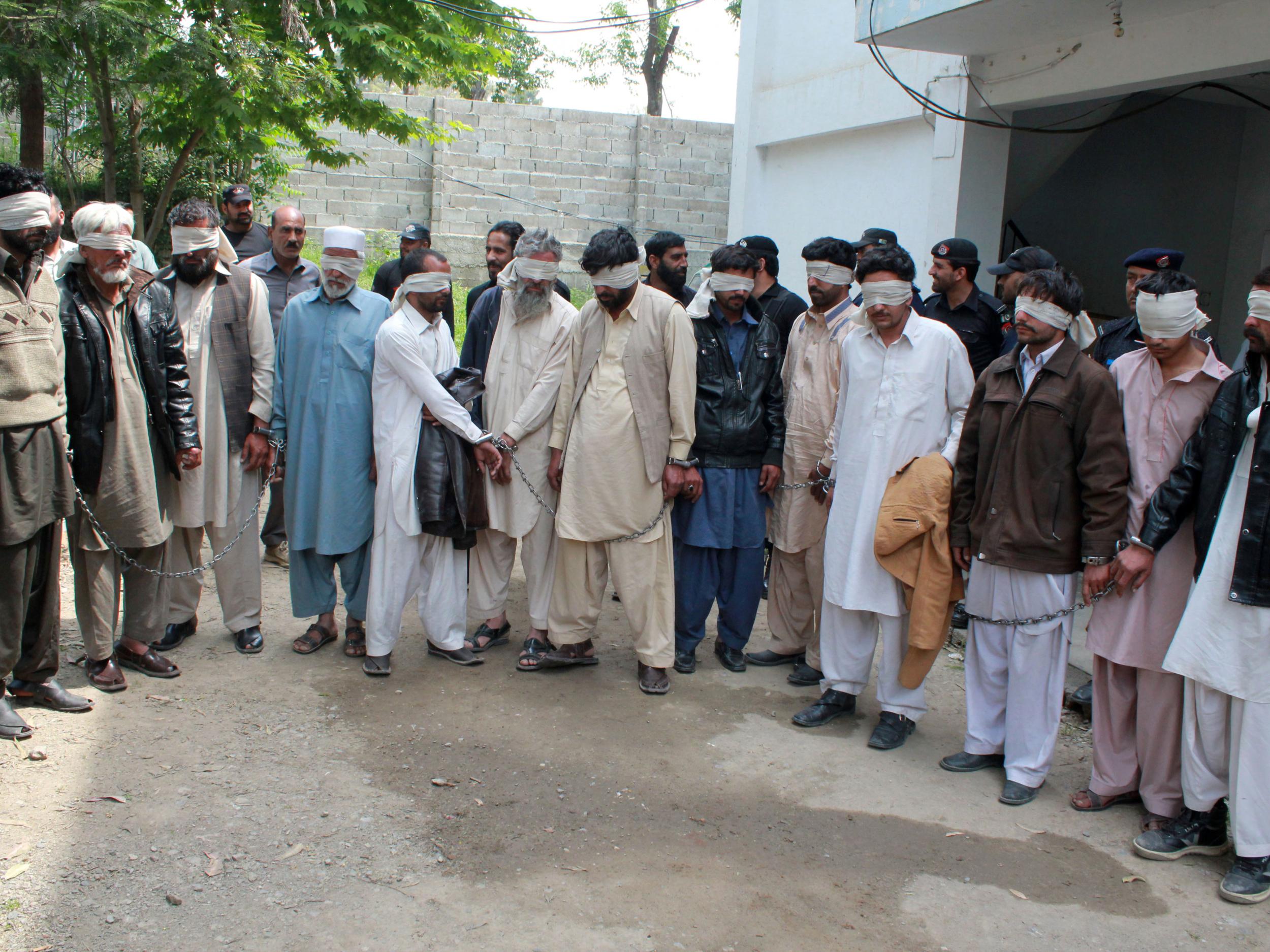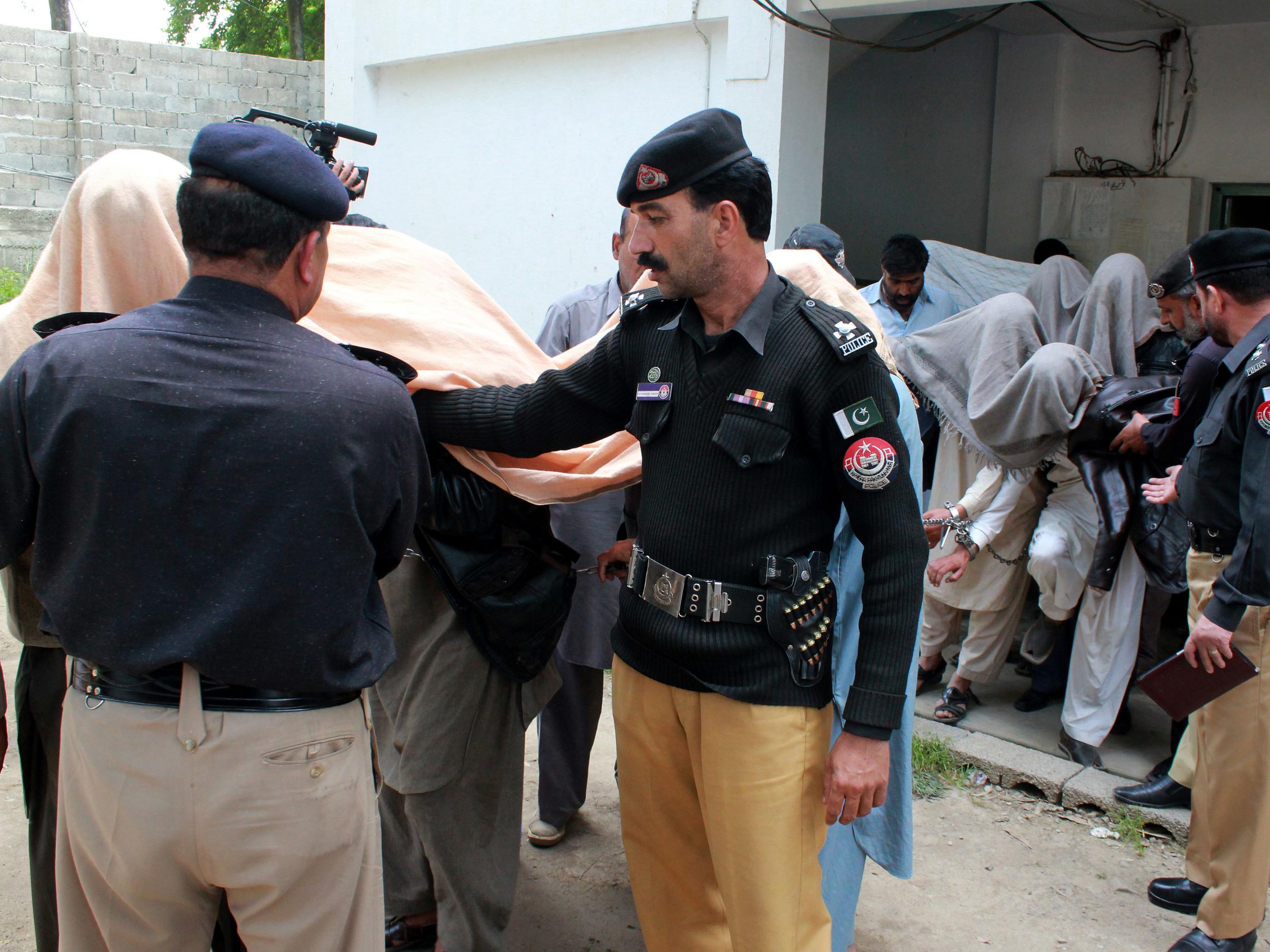Pakistani teenage girl burned alive in ‘honour killing’ after helping friend elope
At least 13 members of the traditional tribal council known as the jirga are being held over the killing

A teenage girl was kidnapped, drugged, put in a van and set alight in an alleged "honour killing" by a tribal council in a Pakistani village after helping a friend elope, police have said.
At least 13 elders in the village near the north-western city Abbottabad have been arrested over the death – along with the girl’s mother, who is said to have agreed to the sentence.
The traditional jirga assembly of elders ordered the girl be put to death last week as punishment for helping a couple leave the village to marry.
The jirga "took her to an abandoned place outside the village and made her unconscious by injecting her with some drugs", district police chief Saeed Wazir said.
“Then they seated the girl in a van in which the couple had escaped. They tied her hands to the seats and then poured petrol on her and the vehicle.
“I hadn't seen such a barbaric attack in my whole life."
According to police, the teenager, known only as Ambreen, was set alight in the van that was used to help her school friend flee the village to marry of her own free will. The couple appear to have escaped.
Some media reports suggest the young woman was strangled by members of the jirga before she was burned.

The arrested members of the jirga appeared in a local anti-terrorism court on Thursday on charges of murder and terrorism.
In many societies around the world, women and girls, including rape victims, are killed by their relatives for engaging in premarital sex, as this is seen as an affront to the family’s honour.
According to district police officer Khurram Rasheed, the punishment in this case was devised to be so severe that no girl would dare run away from the village in future.
The UN estimates around 5,000 women worldwide are the victims of these so-called honour killings each year. However, many cases go unreported.
And a report by Pakistan’s independent Human Rights Commission said nearly 1,100 women and 88 men were killed in Pakistan last year for dishonouring their families.
Mr Rasheed told AFP police were able to trace the accused through mobile phone data.
“The accused confessed during the investigation that a few months back Saima, a schoolgirl from the same village and tribe, eloped with her boyfriend and Ambreen facilitated their frequent meetings and later their elopement,” he said.
According to the BBC, a local official who brought the girl's body to the morgue said: “We went to the place and found three vehicles parked next to each other that were burned.
“In one of them we saw a body. We couldn't recognise her then. But found a few bangles on one of her arms establishing that this was a woman's body.“
In February, a Pakistani film telling the story of a survivor of an attempted honour killing, A Girl in the River: The Price of Forgiveness, won an Academy Award for best short documentary.
Pakistan is currently ranked 147th out of 188 countries on the UN Gender Equality Index.
This is largely due to its poor record on women's health, education, political empowerment and economic status.
Punjab, the largest region in Pakistan, passed a new law in February known as the Punjab Protection of Women Against Violence Bill, to protect women from crimes of physical, financial and psychological abuse.
But more than 30 religious groups have spoken out against the bill, equating women’s rights campaigns with the promotion of obscenity and the destruction of the country’s traditional family system.
Join our commenting forum
Join thought-provoking conversations, follow other Independent readers and see their replies
Comments
Bookmark popover
Removed from bookmarks